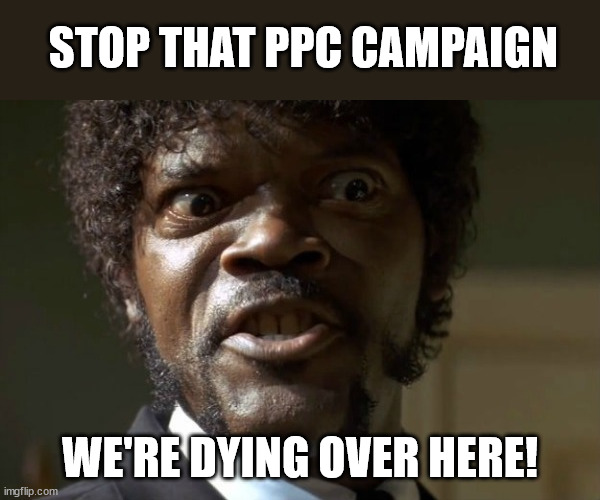Doing online marketing for local real estate agencies is an integral part of your business growth. Real Estate SEO therefore, affects your entire online presence, and how much you gain from all that work.
Without proper SEO, the chances to continue running a successful business are as slim as winning the Formula 1 or Nascar cup with a kit car. Competition is too active. There are too many players in the game and MASSIVE marketing budgets. Such a haphazard approach to online marketing simply won’t do. Especially when real estate SEO is involved in the game.
Here’s a question posted on a secret Facebook marketing group I’m a part of:
How would a real estate business like mine target very specific audiences when my audience is my entire city. Am I correct to be thinking that I must target the city which I do business in? vs. specific groups or keywords? With Google Ad Words it’s fairly easy to put myself infant of a more targeted market as people are searching for homes online. No one is searching for a home on Facebook so I don’t see any real specific targeting that can be done through this medium. Any suggestions?
Here’s my response to the question (a bit expanded and properly formatted):

Who Is My Buyer: Zooming In From The Entire City Down To The Actual Client
You’ve got several layers of attack on this one, but before you get to the action steps you first need to basically create your ideal client following several layers of narrowing down the ideal client/buyer. Proper real estate SEO won’t be possible if you don’t know who your audience is:
- Property type: Are you’re going after residential or commercial real estate?
- Price range: Are you selling/leasing a multi-million dollar building, mid-range or cheap real estate?
- Location: Metropolitan, suburbs or outskirts… or farmland?
- Finances: Financed, cash, loan etc sort of purchase would be another segmenting filter.
Walk through these and set up a storyline that will basically describe who will be your client. You will be targeting a farm buyer completely different from a buyer interested in a commercial real estate or a young married couple looking for their first condo. An example storyline of a buyer can be:
John Smith, a businessman looking for purchase on a commercial building with office and manufacturing facilities under the same roof. Because of the nature of the business, John prefers an inner-city location but not a metropolitan area as his budget caps at $3M. His company is with healthy cash flow and he is looking at a cash-on-hand sale.
After this exercise, you’ll get to zoom in on your target audience, which naturally won’t be the entire city. In a large city like say Chicago, there are a limited number of manufacturing company owners with strong cash flow that are ready to put in $3M in a purchase.
Today! There’d be a hundred of them. Or a thousand. But definitely not 10 million of them.
This gets you very focused on your audience, and based on this buyer storyline you can now extrapolate where these people may be online, what they would be searching for, and more importantly where they are not, and what they’re not looking for. This information will narrow down your real estate SEO activities and naturally a more focused SEO campaign is a more successful one.
Know Your Enemy: The Need Of Real Estate SEO/PPC Numbers In A Numbers Game
Then it’s a matter of doing a competition analysis. You’ll want to see the top performing websites in the organic ranking segment and in the Paid Ads segment on Google. If you see one company ranking in the top 10 positions on Google and yet they hold the first few places with paid ads consider that company your biggest competitor.
You’ll need to have a serious look at how their site is built from an SEO perspective, and how that setup ties into their PPC. Obviously, your competition is engaged in some serious real estate SEO work so you will have to match that… the smart way.
Know your enemy. Reverse-engineer their ranking. Obviously, their real estate SEO is working. See what they’ve done to get on top of Google, and be looking for holes in their defensive lines. Everybody has a blind spot. Everybody has a base that’s not properly covered. An audit will expose the weaknesses that you’ll need to take advantage of with your SEO and PPC activities.
Know Where You’re Going: The Importance Of Tracing Out A Strategy That Spans Your Real Estate SEO, PPC, And Social Activity
Next, you can review the Adwords costs vs the organic ranking costs while keeping in mind that organic ranking helps you get better bid prices for your PPC. A common misconception nowadays is that Search Engine Optimization has nothing to do with Paid Ads. In reality, Google has been factoring in your website’s organic ranking for a given keyword when you bid for a certain PPC campaign. If your site ranks better than your competitor’s site, even if you both bid for the same keyword, you will get a lower price per click thanks yo your better ranking.
Now if you zoom out from a single click and a single ad onto your overall PPC activity on all the campaigns covering hundreds of keywords day in and day out… the numbers add up pretty fast. A properly optimized website will bring down your PPC costs significantly. Having in mind that certain real estate keywords bids go upwards of $50 investing in Real Estate SEO is a no-brainer.
While people won’t be getting on Facebook to search for commercial property, you still meet most of them (and maybe not, depending on your target audience) on Facebook as they do whatever it is they’re doing. Nobody on Facebook is looking for hosting but as I type this response I see an ad of a crappy hosting provider.
The point here is that people who use Google also use Facebook, and once you get their attention you can start building the relationship that should eventually lead to a business deal. That’s what good real estate SEO should do: get the hot leads to your website either through Google, PPC or Social sites:
- It may be that your audience turns out to be 30 something ladies. Then you’ll want to also consider Pinterest and Instagram, as these two social network sites are predominantly visited by women.
- If your audience is 40something males you will want to also take in Linkedin and Google+ activity as these two networks are the counterweight to Pinterest/Instagram when it comes to demographics.
The key here is to keep everything into perspective as you work on your real estate SEO. Your content marketing activities must support your PPC and Social activity. What you post on your blog has to offer ranking support to a specific PPC campaign that you want to either complement with organic traffic or reduce the Cost Per Click.
In some cases you simply won’t be able to rank for a specific keyword and will decide to cover that one with PPC… but that doesn’t mean that you abandon any content marketing targeting that keyword.
Your content marketing will also be playing a big role in your activity on social networks. If your audience is predominantly on Pinterest and Instagram you will want to include more visual content as these social networks naturally gravitate toward images.
But if your audience is mostly on Linkedin and Google+ you will want to post authority blog posts where there is a very strong emphasis on informing your audience about a certain concept or idea (similar to the post you’re reading now). Either way, the content you post on your site and social accounts must work as integral parts of your overall real estate SEO activities.
Wrapping It All Up
Doing real estate SEO for your business, or online marketing in general needs some data-based thinking. Thankfully there are plenty of data out there, starting from Google Analytics, Webmaster Tools, Facebook Page Insights etc. And then there’s the information for your competitors’ websites. Thanks to special tools for competition analysis you can get tons of data to help you figure out how to develop your content development strategy which will, in turn, supplement your PPC and Social Media Marketing activities.
When it’s all said and done, online marketing is a numbers game. You may not like it, and you may choose not to play the numbers game, but the problem is that if you don’t play it, your competitors will only have an easier time to push you out of business. The good thing in all this is that playing the numbers game isn’t all that scary. Or expensive.
So get your data straight. Segment your audience, figure out the storyline for each buyers group and complement them with a comprehensive content marketing plan. The ROI of such a plan is tremendous. With a single sale of a real estate deal, you can pay for an entire year of data-based online marketing activities that will keep bringing in more and more clients.






